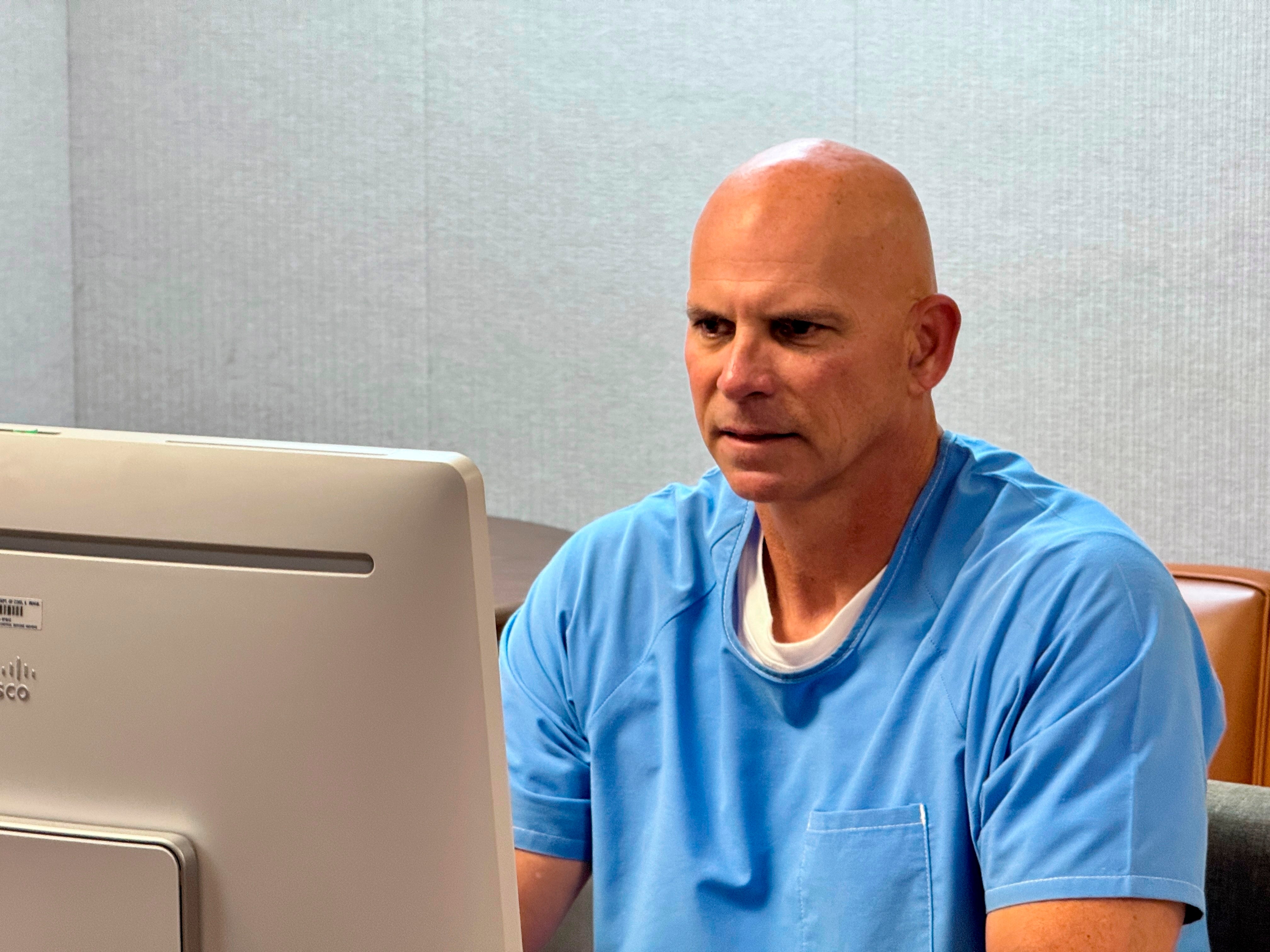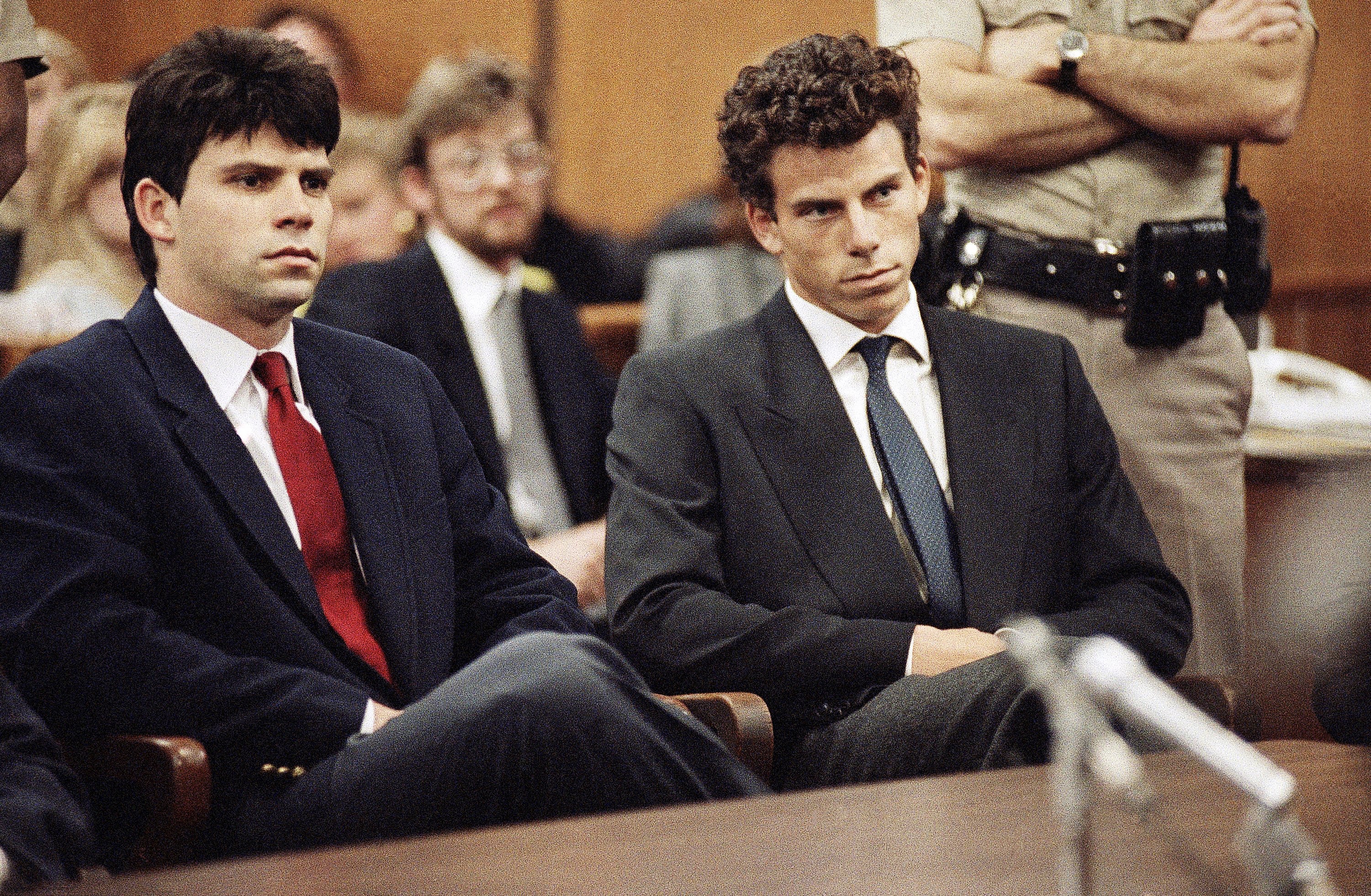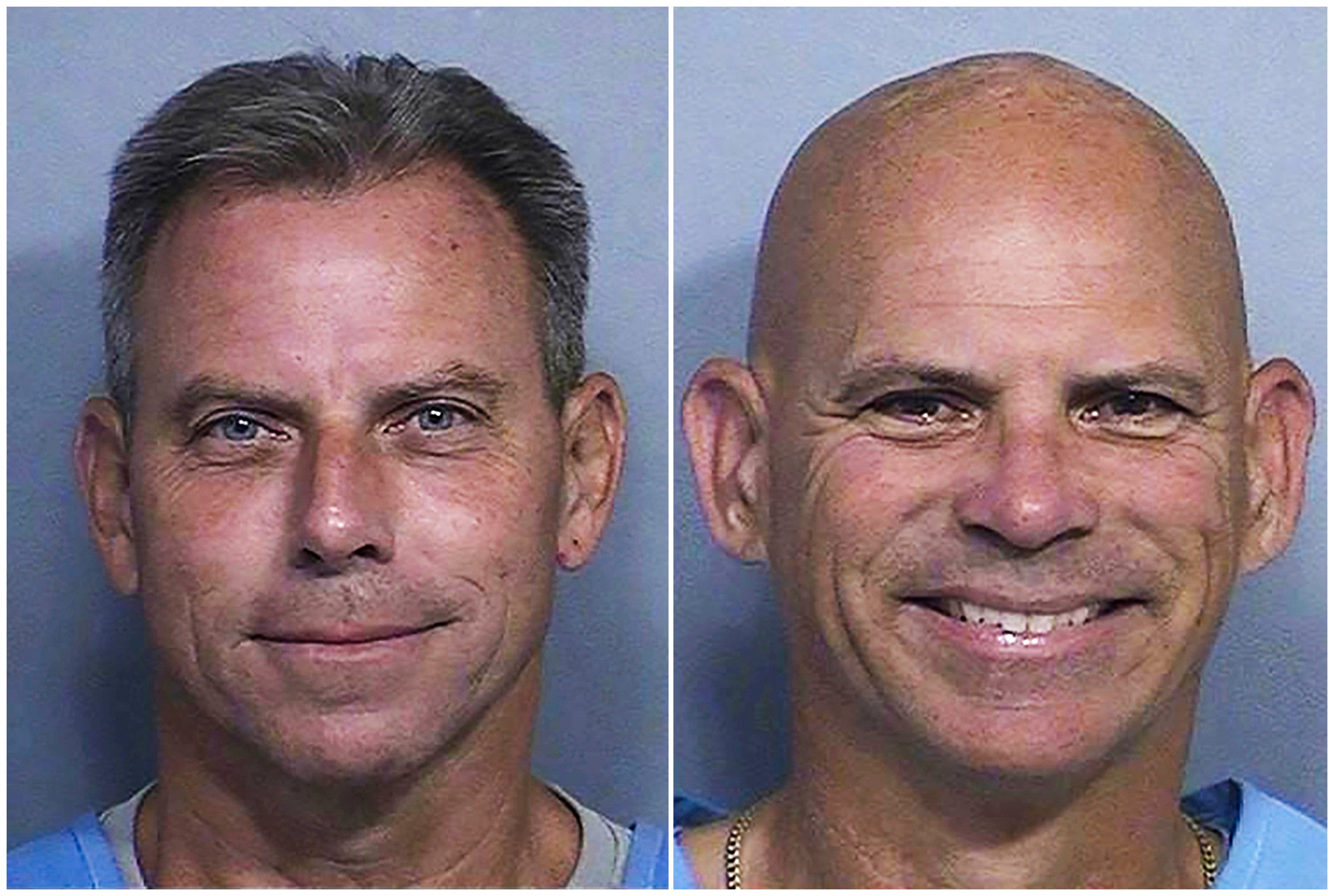Lyle Menendez has been denied parole after an 11-hour hearing.
His younger brother Erik Menendez was denied his parole on Thursday after a similarly long hearing — potentially the two longest in the history of California.
They can apply again for release in three years.
Almost 30 years after their convictions for murdering their parents, Lyle and Erik were given the opportunity to present their cases for parole — the closest they have come to securing freedom since then.
They were sentenced in 1996 to life imprisonment for fatally shooting their father, Jose Menendez, and mother, Kitty Menendez, in their Beverly Hills mansion on August 20, 1989. They were 21 and 18 at the time.

Defense attorneys argued the brothers acted in self-defense after years of sexual abuse by their father; prosecutors claimed they murdered their parents for a multimillion-dollar inheritance.
The brothers became eligible for parole in May after a Los Angeles judge reduced their sentences from life in prison without the possibility of parole to 50 years to life, making them immediately eligible under California law because they were under 26 when they committed their crimes.
It was decided that a panel of parole hearing officers would evaluate the brothers individually. They both appeared by video link from prison on their respective days, with other participants joining from various locations.
In California, if a board recommends parole, there is a 120-day review period for the case. Democratic Gov. Gavin Newsom then has 30 days to affirm or deny the parole.

There was no live feed of the hearing, and only one journalist was allowed to watch and provide reports to other media outlets, which were barred from publishing them until a decision was reached.
James Queally of The Los Angeles Times reports that the hearing was stalled for hours after the California Corrections Department accidentally released a recording of Erik Menendez’s parole hearing to a news outlet.
The family was furious. Many then declined to speak in support of Lyle for fear their recordings would be made public.
Transcripts of parole hearings become public within 30 days and there was an indication that public records requests for audio recordings of the Menendez brothers hearings would be honored, but the victims families said they were never informed, which sparked outrage in the hearing.
Erik’s parole was denied with his behavior in prison cited as the main reason, not the seriousness of the crime for which he was incarcerated.
According to the pool reporter, the parole commissioners cited Erik’s multiple rule violations in prison as aggravating factors. These included the use of cell phones, drugs, allegedly aiding a gang in a tax scheme, as well as two instances of violence.
The two commissioners denied parole despite strong support from family members who have been advocating for the brothers’ release for months.

“Two things can be true. They can love and forgive you, and you can still be found unsuitable for parole,” Commissioner Robert Barton said.
For years, the brothers filed petitions for appeals from behind bars, but they were denied by state and federal judges.
The brothers have engaged in educational activities while in prison, participated in self-help classes, and established various support groups for fellow prisoners.
They also launched a prison beautification project inspired by the Norwegian approach to incarceration that believes rehabilitation in humane prisons surrounded by nature leads to successful reintegration into society, even for people who have committed terrible crimes.
Over the years, the Menendez case has continued to fascinate the public, and the brothers became celebrities of sorts. They also were the subjects of true crime shows, including last year’s nine-episode Netflix crime drama Monsters: The Lyle and Erik Menendez Story.




